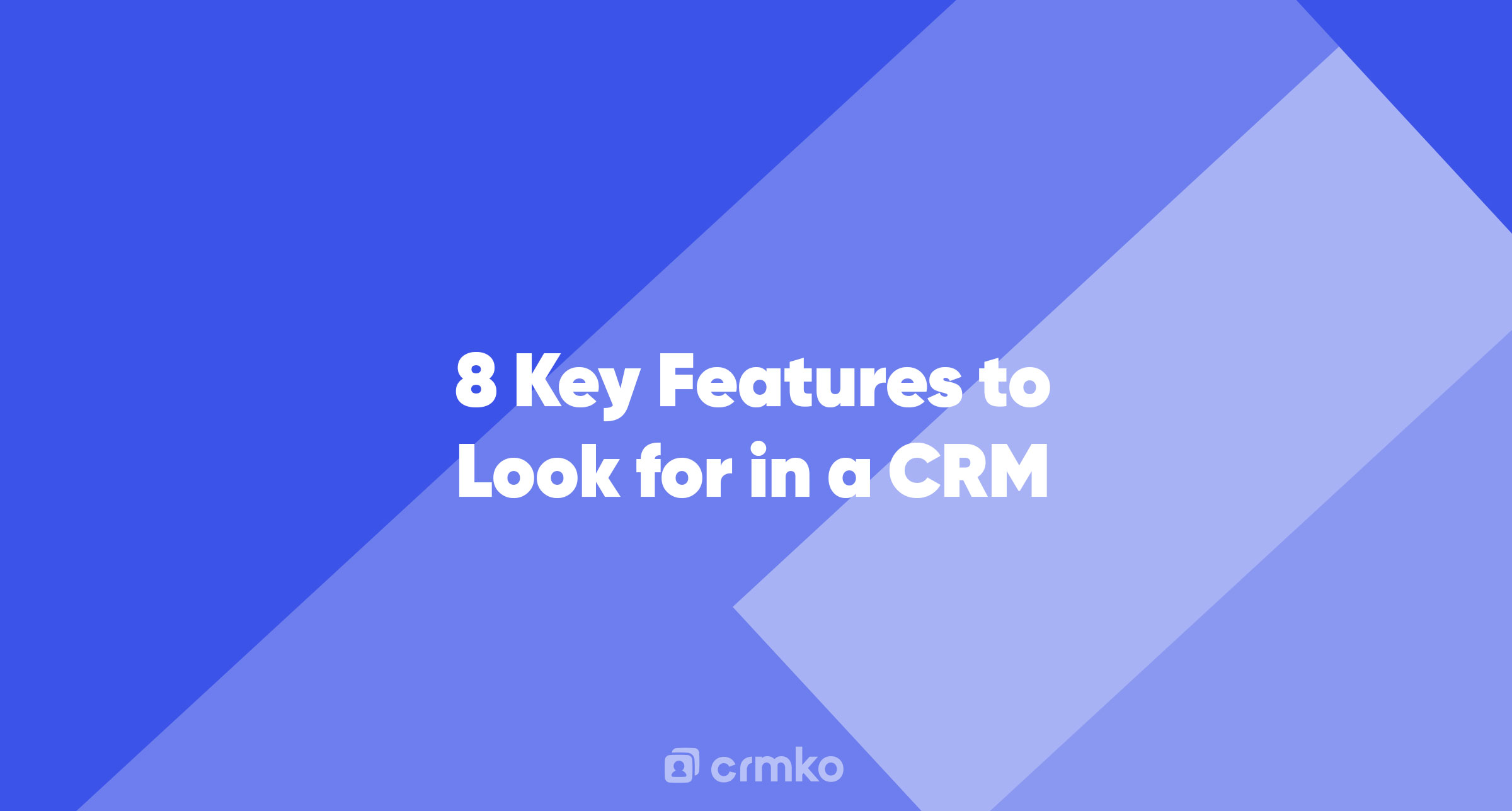In today's competitive business landscape, having a robust Customer Relationship Management (CRM) system is no longer a luxury but a necessity. A well-rounded CRM system can streamline your business operations, improve customer relationships, and boost your team's productivity. But with a myriad of CRM platforms available in the market, how do you pick the right one? This comprehensive guide delves into the eight key CRM features you should look for when choosing the perfect CRM system for your business.
1. Contact Management
1.1 Organizing Contacts
The cornerstone of any CRM system is its contact management feature. This is more than just a digital address book. It should allow your business to track all customer interactions, store their personal information, their demographics, and keep a record of their transactions with your business.
1.2 Lead Scoring
A sophisticated CRM system should also facilitate lead scoring, enabling you to predict the likelihood of a prospect converting into a paying customer. This feature helps you to prioritize leads and allocate your resources more efficiently.
2. Social Media Integration
2.1 Direct Integrations
In the modern business world, social selling has become a norm rather than an exception. Your CRM system should seamlessly integrate with social media platforms like Facebook, Twitter, and LinkedIn, enabling you to reference your contacts' social profiles directly from your CRM dashboard.
2.2 Social Media Management
Some advanced CRM systems also let you schedule posts, reply to comments, and manage your social media channels directly from the CRM dashboard. This feature allows you to centralize your marketing efforts and streamline your social media management tasks.
3. Sales Analytics
3.1 Sales Cycle Analysis
A robust CRM system should offer comprehensive sales analytics functionality. Detailed real-time reports can help you track your progress, identify areas of improvement, and understand your customers' needs based on historical trends.
3.2 Predictive Analytics
Moreover, some CRM systems come equipped with predictive analytics that uses machine learning algorithms to forecast future sales trends based on historical data. This can help your business stay ahead of the curve and make data-driven decisions.
4. Email Automation
4.1 Automated Email Campaigns
In today's fast-paced business environment, automation is key to efficiency. Your CRM system should allow you to automate email marketing campaigns, send out batch sales emails, schedule newsletters, and run welcome drip campaigns.
4.2 Email Tracking
Additionally, a good CRM platform must have email tracking that enables you to monitor the performance of your email campaigns. This includes tracking email open rates, click-through rates, and response rates, helping you to refine your email marketing strategy.
5. Workflow Automation and Management
5.1 Process Automation
Workflow automation is another pivotal feature in a CRM system. It allows you to automate repetitive tasks such as follow-up emails and contact forms, saving you time and reducing the chance of errors.
5.2 Task Management
Your CRM should also have a task management feature that allows you to assign tasks, set deadlines, and monitor progress. This can keep your team on track and ensure that no task falls through the cracks.
6. Sales Team Performance Tracking
6.1 Sales Pipeline Visualization
A quality CRM system should offer a clear visualization of your sales pipeline. This helps you track where each deal is in the pipeline, and how you're tracking toward your monthly sales goals.
6.2 Sales Team Performance Metrics
Moreover, the CRM system should provide insights into your sales team's performance, including individual sales metrics, productivity levels, and goal attainment rates. This data can inform your sales strategy and help identify areas for improvement.
7. Document Storage and Management
7.1 Centralized Document Storage
With the plethora of documents involved in a business, a CRM system should provide a centralized location for document storage and management. This eliminates the need to sift through countless files and folders, increasing efficiency and reducing clutter.
7.2 Seamless Integration with Other Tools
Additionally, your CRM should integrate well with other tools such as Google Drive or Dropbox, enabling you to easily upload and share documents with your team.
8. Customization
8.1 System Adaptability
One of the most valuable features of a CRM system is its ability to adapt to your business needs. You should be able to customize the system to reflect your sales process, marketing strategy, and customer service activities.
8.2 User-specific Customization
Different users in your organization may have different needs. For instance, your sales department might need an advanced sales set, while your marketing team may only need to use the marketing-related functionality. A good CRM system should allow for user-specific customization.
Conclusion
Choosing the right CRM system can be a game-changer for your business. While this guide outlines the eight key CRM features to look for, it's crucial to remember that every business is unique. Therefore, your CRM needs will also be unique. Take the time to identify your business needs, budget, and growth plan before settling on a CRM system. Remember, the best CRM system is not the one with the most features, but the one that best fits your business needs.
Investing in a CRM system with these key features can significantly streamline your business operations, enhance customer relationships, and boost your bottom line. So, choose wisely and let your CRM system be the catalyst for your business success.
